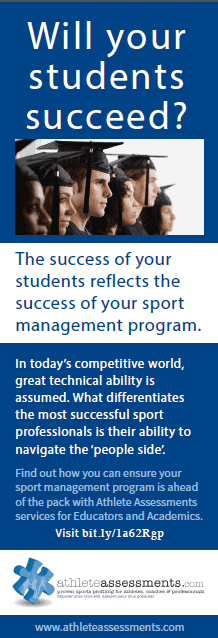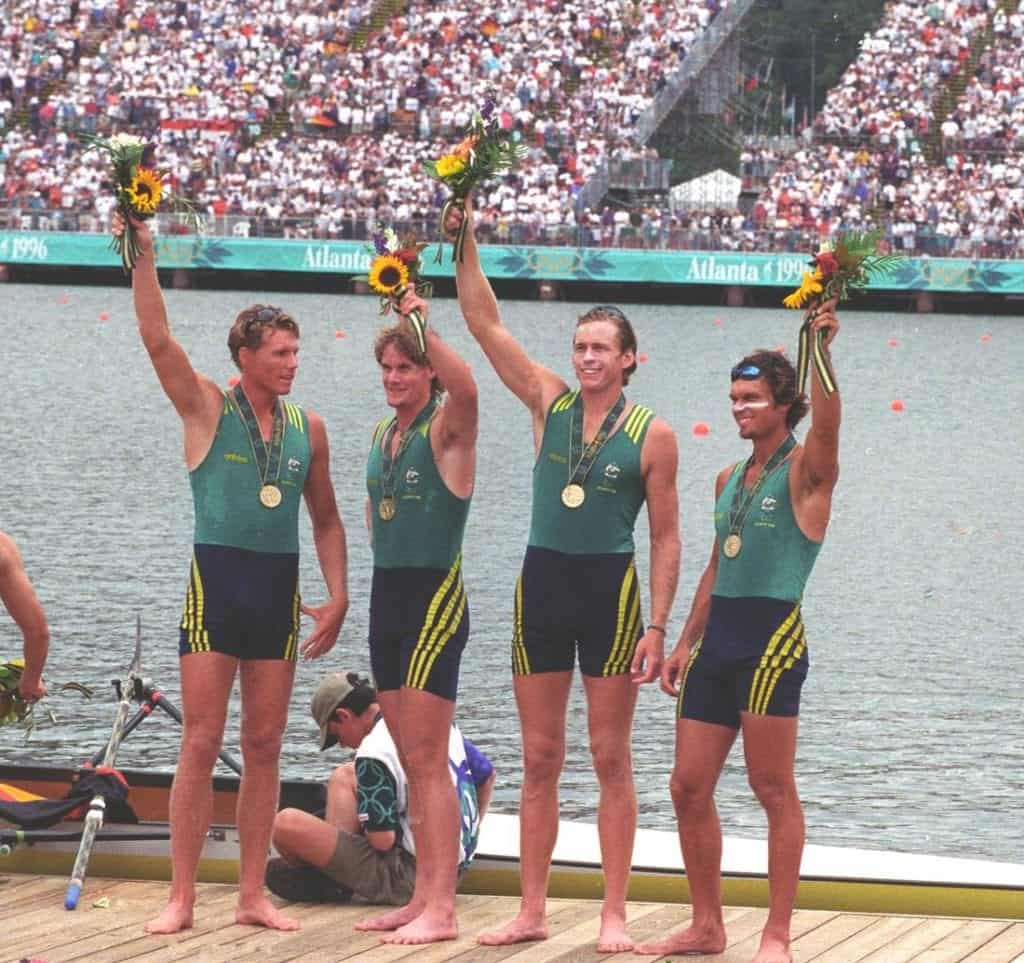By Liz Masen and Kate Ross
It takes a village to raise a student

The research which confronts sport management educators and career service personnel cannot be ignored. The challenge continues to be balancing academics with real-world demands, and particularly for sport management being an applied field. The prominent questions that arise in an educator’s mind are, what do Sport Management students need in order to be successful post graduation? How do you develop their ability to work well both independently and in a team? And what can they and others do in order to assist and motivate students to reach, or hopefully, exceed their potential?
“Sport Management educators are forever a complex Venn diagram consisting of academia, business and competitive sports. Oscillating from teaching, research and service to consulting with business ventures to working with coaches and athletes, the job dictates a demanding lifestyle. In their primary role as educators, it is their ethical and moral obligation to provide their students with all the tools necessary for success in the competitive industry of sports.” says St. John’s University (NY) Assistant Professor, Dr. David P. Hedlund.
 According to Dr. Michelle Kyriakides and Elisa Zervos, PCC, research conducted at St. John’s University pointed to the most effective way to support students with integration of academics and real world demands as through an organization of collective resources, designed to educate students and assist them knowing who they are. The University demonstrates commitment to this by locating career advisors within the academic faculty offices.
According to Dr. Michelle Kyriakides and Elisa Zervos, PCC, research conducted at St. John’s University pointed to the most effective way to support students with integration of academics and real world demands as through an organization of collective resources, designed to educate students and assist them knowing who they are. The University demonstrates commitment to this by locating career advisors within the academic faculty offices.
In terms of pooling collective resources, St. John’s created a community-based way of preparing students for career success. According to Dr. Kyriakides, “It became evident that we must develop more intentional partnerships between faculty and career service professionals to best prepare our diverse student body for career success across the curriculum.”
The partnerships with faculty and career services have indeed proven to be highly beneficial for all those involved, not to mention the students who are reaping the educational rewards with gusto. Career Services have also provided the faculty with industry-specific reports about the potential employment outcomes of their students.
St. John’s use of DISC assessments, which are featured prominently within the Sport Management department, helps with the overall preparation of the students who participate in the assessment and analysis projects. Given that the first step in branding yourself is self-assessment, it is prudent for the students to know what their skills are before they are fully able to articulate themselves in a confident manner.
To aid students in practicing these techniques and applying what they have learned in the classroom, Career and Internship Advisor Elisa Zervos, PCC, said that students are strongly encouraged to meet separately with their career advisors. “At the culmination of the ‘project’ that focuses on their career ambitions and plans, they meet to discuss logistics and formal etiquette. Things like cover letter, resume and online presence.”

Students are also prompted to participate in Career Services’ ‘Polished and Professional Events’, which include mock interviews that they receive immediate feedback from. The success of their students reflects the success of their program.
St. John’s University (New York) has one of the most established and largest sport management programs internationally, having started back in the 1970’s and boasting more than 400 undergraduate and 80 post graduate students.
This article was featured in People+Sport Magazine: Education and Professional Development Edition
At Athlete Assessments, we’re here to provide you with excellence in service and here to help you be your best. If there is anything we can assist you with, please Contact Us.




